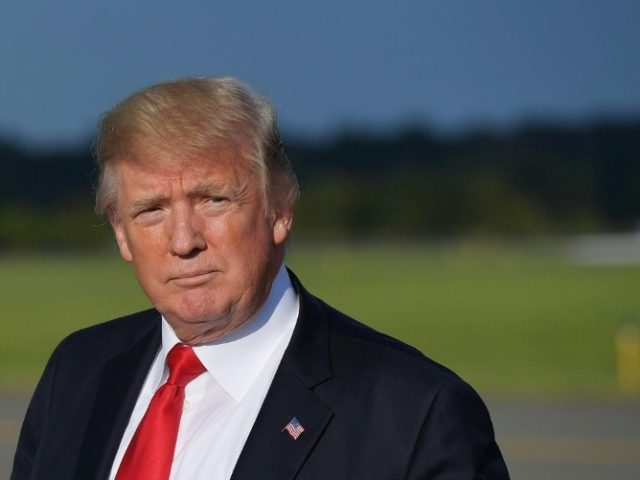When legislation on U.S. foreign policy, vehemently opposed by the president, comes before the U.S. Senate for approval, the chances the bill will sail through by unanimous vote are highly unlikely.
This is especially so when the issue involved is one as contentious as the Iran nuclear deal. Such a unanimous Senate vote, against the president’s wishes, would send him the message he does not know s#&% about Iran.
Were Donald Trump president when such a vote occurred, the media would have rejoiced over the bill’s rejection by the Senate. But the reason we did not hear much about it last time it happened was because Barack Obama was president at the time. It was a slap in the face in the final days of his term, when the Senate voted 99-0 to be able to extend sanctions on Iran, giving the next president leverage over Tehran for years to come. As an additional rebuke of Obama, the bill had previously passed the House by a 419-1 vote.
The reason for the lopsided vote was Obama was choosing to ignore what Congress would not: future Iranian noncompliance on the nuclear deal.
President Donald Trump has described the Iran nuclear deal as “the worst deal ever negotiated.” He has reportedly decided what to do with it but has given no details.
Every 90 days, the president is required to certify to Congress whether Tehran remains in compliance and “suspension of sanctions remains vital to US national-security interests and proportionate to Iran’s efforts to terminate its illicit nuclear programs.” While Trump certified Iranian compliance July 17th, it was qualified with language indicating Iran was unquestionably in violation of the spirit of the deal. This was due to Obama knowingly accepting an agreement riddled with holes.
There are major concerns about the Iran deal. Since Obama used his executive powers to circumvent required Senate scrutiny concerning its implementation, only learned after-the-fact was the existence of numerous secret side deals such as a hostages-for-cash exchange; inspection of a soil sample (for analysis to determine if a nuclear weaponization effort were undertaken) collected, not by impartial inspectors, but by the Iranians; access to “dual use” (having both a civilian and military application) items; etc.
We must now demand the holes in the Iran deal be filled, giving it something Obama refused to: transparency ensuring compliance.
Cooperation with our European partners on this strategy should be doable as they see Iran’s behavior becoming more belligerent. This has been evidenced by Iran’s sponsorship of the Houthi rebellion war in Yemen and of the sedition in Bahrain and oil provinces of Saudi Arabia.
But Trump must also work outside the agreement, working with the Saudis and Egyptians in their current dispute over Qatar’s support of the Muslim Brotherhood. This demands certifying the Brotherhood, as these countries have done, as a terrorist organization. Time is of the essence here as the void created by the Egyptian/Saudi boycott of Qatar is already being filled by Iran on various levels.
In August, Congress did take the positive step of designating Iran’s Islamic Revolutionary Guard Corps (IRGC) as a terrorist organization—the first time the US has designated an official military branch of a foreign nation as such. Trump must now endorse this by October 31. Unfortunately, not included by Congress was the carrier Iran Air which has a storied history of terrorist activity that continues today as it transports weapons and fighters to Syria.
We cannot ignore the fact Iran is working in conjunction with another rogue nation, North Korea, not only in sharing research and development on their nuclear and missile programs, but in testing U.S. will to stop these efforts. That is why Pyongyang recently demanded an Iran-type nuclear agreement.
Both rogue states have learned they can benefit by moving forward with their programs. Afterall, Obama released $150 billion to Iran in assets frozen since the fall of the Shah; meanwhile, North Korea has repeatedly received billions of dollars in aid and other assets over the past decades.
The bottom line in failing to fix the Iran deal puts pressure on the US to give the same deal to North Korea—one which, as it exists, secures a nuclear arsenal for both countries. And with Tehran’s influence expanding in Iraq and Syria, those nations too might eventually demand an Iran-type deal too. It should be obvious that embracing Obama’s original Iran deal as is means nuclear proliferation.
By October 15th, Trump needs to decertify Iran’s compliance with the nuclear deal, demanding the road it paves for a nuclear-armed Iran be blocked.
There is no doubt a demand for decertification will earn Trump criticism on all fronts—from inside and out of his party, from the media and from abroad. He also will be bucking his own advisors, such as Secretary of State Rex Tillerson, who seems set on embracing both Qatar and the Muslim Brotherhood.
But two things Trump cannot be criticized for is saying what he believes and putting America first. Both these influences converge in demanding decertification of the nuclear deal with Iran. It will be interesting to see if the real Donald Trump steps forward and does so.
Lt. Colonel James G. Zumwalt, USMC (Ret.), is a retired Marine infantry officer who served in the Vietnam war, the U.S. invasion of Panama and the first Gulf war. He is the author of “Bare Feet, Iron Will–Stories from the Other Side of Vietnam’s Battlefields,” “Living the Juche Lie: North Korea’s Kim Dynasty” and “Doomsday: Iran–The Clock is Ticking.” He frequently writes on foreign policy and defense issues.

COMMENTS
Please let us know if you're having issues with commenting.